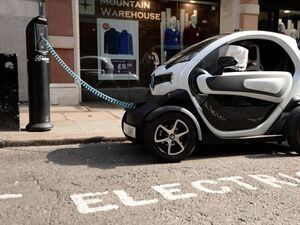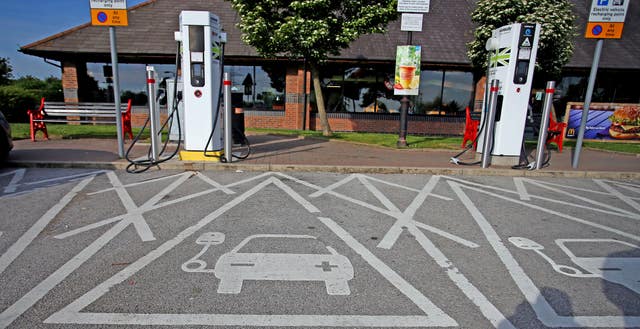Fewer than one in 20 council vehicles eco-friendly, figures show
The Scottish Liberal Democrats are calling on the Scottish Government to deliver a comprehensive plan for reducing transport emissions.

Fewer than one in 20 local authority vehicles are eco-friendly electric or hybrid models, new figures show.
Statistics obtained through a Freedom of Information request submitted by Scottish Liberal Democrats to all 32 local authorities found that only 4.6% of vehicles owned by them are eco-friendly.
From a total of 17,140 vehicles, just 613 are electric (3.6%) and 181 are hybrid (1%).
Scottish Liberal Democrats transport spokesman Mike Rumbles is now calling on the Scottish Government to deliver a comprehensive plan for reducing transport emissions.

“These figures show that less than one in 20 local authority vehicles is eco-friendly.
“Public bodies need to show leadership and demonstrate our commitment to tackling climate change and cleaning up the air we breathe. However, they will not be able to do this alone.
“The Scottish Government need to deliver a comprehensive plan for reducing transport emissions, including measures to support all public bodies in shifting to eco-friendly vehicle fleets and installing the necessary charging points.
“The Government must also use the Transport Bill to boost public transport and active travel, including allowing local authorities to set up municipal bus companies covering all routes, not just those which are currently making a loss.”
The most eco-friendly councils were Scottish Borders (22.8% of vehicles electric or hybrid) and Shetland (22.4%).
Two local authorities, Clackmannanshire and North Ayrshire, did not reply.
A Scottish Government spokesman said: “We have already invested over £9 million through the 2018/19 Switched on Fleets initiative, supporting orders for over 700 ultra low-emission vehicles across the public sector in Scotland, with over 500 of those placed by local authorities. The majority of these vehicles will be delivered in the coming months.
“The Transport Bill is an ambitious piece of legislation covering a wide range of issues which will deliver a cleaner, smarter and more accessible system for the travelling public across Scotland.
“It is part of a broader transport jigsaw where low-emission zones (LEZs) and an improved framework for our bus services should not be seen in isolation. There is also a host of other non-legislative work under way to drive improvement.
“We expect uptake in electric vehicles to accelerate dramatically in the years ahead and are investing in growing the charging network. Homeowners and businesses can take advantage of funding we provide to purchase low-emission vehicles and install charging infrastructure. We already have one of the most comprehensive charging networks in Europe, with an average distance of just over two miles between chargepoints – the equivalent figure for England and Wales is over four miles.”
He said that while the quality of air in Scotland’s towns and cities is generally good, local authorities and government are aware of the problems in city centres and that it is a problem caused largely through diesel emissions from older vehicles.
The Scottish Government is committed to phasing out the need for new petrol and diesel cars and vans by 2032.
The spokesman said that, working in partnership with Scotland’s four main cities, it is on track to deliver LEZs which provide access to only the cleanest vehicles in order to reduce toxic emissions.





